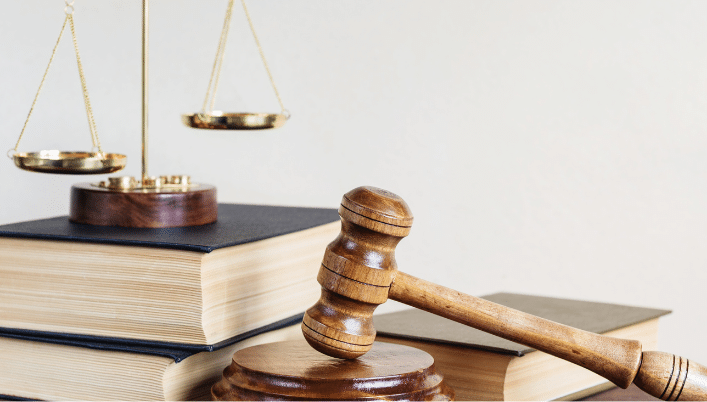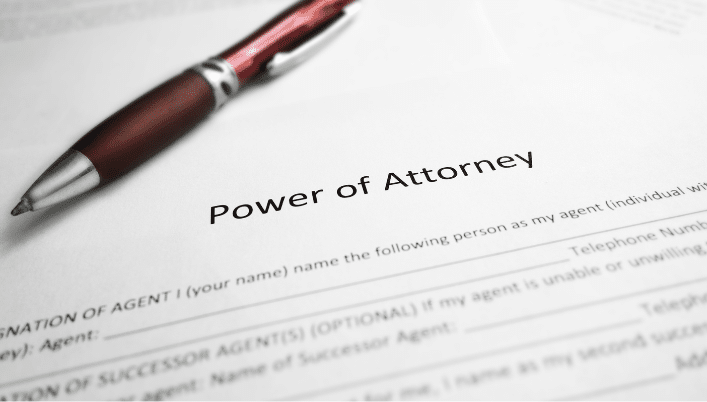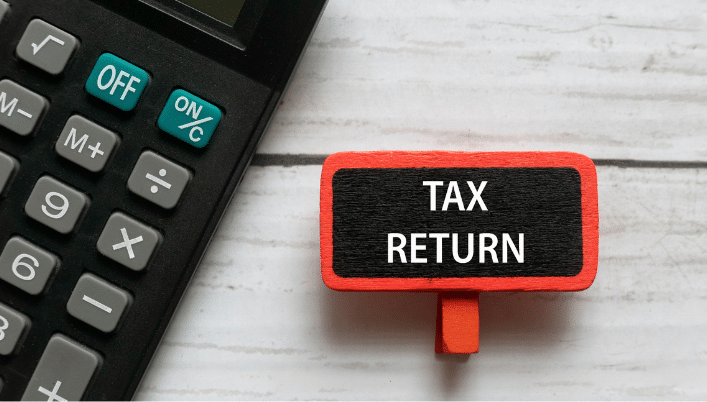
Step into a world of legal empowerment with Power of Attorney—a transformative tool that grants someone the authority to act on your behalf.
Picture this: a guardian of decisions, a trusted agent, your voice when you can’t speak.
Crafted meticulously, it safeguards your interests, even in incapacitation.
Key Takeaways
- Definition and Purpose: A Power of Attorney (POA) is a vital legal document that allows a designated agent (donee) to make decisions on behalf of another person (donor). It is regulated by the law to ensure proper execution and prevent abuse.
- Agent’s Authority: A POA grants legal authority to the donee to act on behalf of the donor. This authority can be broad, covering financial, medical, and real estate decisions, depending on the type of POA. Understanding powers and limitations is crucial.
- Importance: A POA is essential to ensure trusted decision-making when the donor is unable. This is crucial for urgent situations like medical treatment or financial matters, protecting against disputes and abuse.
- Types of POA: Different types include General POA (broad authority), Springing POA (activated upon specific event), and Limited POA (specific and limited powers).
- Lasting Power of Attorney (LPA): In Singapore, LPA caters to individuals who may lose mental capacity. It appoints a donee for personal welfare and property decisions. It offers protection when the donor can’t decide.
- Creating LPA: To create LPA in Singapore, complete LPA Form 1, signed by donor, donee, and witnesses. Register it with the Office of the Public Guardian. Mental capacity assessment is necessary.
- Donor and Donee Roles: Donor creates LPA and appoints donee. Donor must have mental capacity. Donee acts on behalf of donor, adhering to LPA terms and the donor’s best interests.
- Importance of LPA: LPA safeguards interests if mental capacity is lost. It’s crucial for medical treatment preferences and financial management.
- Revoking a POA: You can revoke a POA if circumstances change or trust is compromised. Follow legal procedures, consult professionals, and submit a revocation notice.
- Tax Implications: POA can impact tax returns, especially if the donee manages finances. Communicate, consult experts, and maintain thorough records to ensure compliance.
Introduction to the Power of Attorney
What is a Power of Attorney?
Having a power of attorney is a vital legal document that allows an appointed agent, known as the donee, to make decisions on behalf of another person, known as the donor.
In Singapore, the law regulates power of attorney to ensure proper execution and prevent abuse.
How Does a Power of Attorney Work?
A power of attorney works by granting legal authority to the appointed agent to act on behalf of the donor.
This authority can be broad, allowing the agent to make decisions relating to financial matters, medical treatment, and even real estate transactions, depending on the type of power of attorney.
Understanding the strengths and limitations granted under the control of attorney documents is crucial.
Why is it Important to Have a Power of Attorney?
Having a power of attorney is essential for several reasons.
It ensures that someone is trusted and capable of acting on behalf of the donor when they cannot make decisions.
This can be particularly crucial when urgent choices, such as medical treatment or financial matters, are needed.
Having a power of attorney also protects against potential disputes or abuse by clearly outlining the authority and capabilities of the appointed agent.
Understanding the Different Types of Power of Attorney
General Power of Attorney
A general power of attorney grants broad powers to the donee, allowing them to make various legal decisions on behalf of the donor.
The donee has the authority to handle financial matters, enter into contracts, and make decisions related to real estate transactions.
Choosing a trusted individual as the donee is essential, as they will have significant control over the donor’s affairs.
Springing Power of Attorney
A springing power of attorney only becomes effective upon a specific event, such as the incapacitation of the donor.
Until the specified event takes place, a power of attorney remains inactive.
This type of power of attorney ensures that the donor maintains control over their affairs until they cannot make decisions themselves, providing protection.
Limited Power of Attorney
A limited power of attorney grants the donee specific and limited powers to act on behalf of the donor.
This power of attorney is often used for a particular purpose or within a defined timeframe.
For example, a limited power of attorney may be granted to handle a specific financial transaction or to represent the donor in a legal proceeding.
Exploring the Concept of Lasting Power of Attorney (LPA)
What is Lasting Power of Attorney?
In Singapore, the Lasting Power of Attorney (LPA) concept caters to individuals who may lose their mental capacity.
It allows them to appoint a donee to make crucial decisions regarding their personal welfare and property matters.
The LPA ensures that the donor’s interests and well-being are protected when they can no longer decide for themselves.
How to Make a Lasting Power of Attorney in Singapore
To make a Lasting Power of Attorney (LPA) in Singapore, the donor must complete the LPA Form 1, available on the Office of the Public Guardian’s website.
The LPA Form 1 must be signed by the donor, the donee, and two witnesses.
The completed form must then be registered with the Office of the Public Guardian, and a Certificate Issuer must assess the donor’s mental capacity.
The LPA becomes legally effective once it is written.
The Role of a Donor and Donee in LPA
In a Lasting Power of Attorney (LPA), the donor is the person who creates the LPA and appoints a donee.
The donor must have the mental capacity to understand the nature and effect of the LPA at the time of building it.
On the other hand, the donor appoints the donee to make decisions on their behalf.
The donee must act in the donor’s best interests and comply with the scope of authority outlined in the LPA document.
The Importance of Creating a Power of Attorney

Protecting Your Interests with a Power of Attorney
Creating a power of attorney is essential for protecting your interests regarding personal welfare and financial matters.
By appointing a trusted individual as a donee, you can ensure that your wishes are fulfilled when you cannot make decisions.
This is especially crucial if you have specific medical treatment or financial management preferences.
Preventing Potential Disputes and Abuse
Having a power of attorney in place can prevent potential disputes and abuse.
By clearly outlining the authority and capabilities of the appointed agent, any potential disagreements or conflicts can be avoided.
It provides transparency and clarity in decision-making, protecting the donor’s interests.
Revoking or Terminating a Power of Attorney
If there comes a time when the donor wishes to revoke or terminate a power of attorney, it is essential to follow the proper legal procedures.
Generally, a power of attorney can be canceled by executing a revocation document clearly stating the intention to terminate the power of attorney.
It is advisable to consult with a legal professional to ensure that the revocation is done correctly.
An In-depth Look at Different Types of Power of Attorney
Power of Attorney for Financial Matters
A power of attorney for financial matters grants the donee the authority to handle the donor’s financial transactions.
This can include managing bank accounts, paying bills, filing tax returns, and making investment decisions.
Choosing a responsible and trustworthy individual as the donee is crucial, as they will have access to sensitive financial information and the power to make decisions that can significantly impact the donor’s economic well-being.
Power of Attorney for Medical Treatment
A power of attorney for medical treatment allows the donee to decide on the donor’s healthcare and medical treatment.
This can include consenting to medical procedures, choosing healthcare providers, and making end-of-life decisions.
It is essential to have open and honest communication with the donee regarding the donor’s wishes and preferences for medical treatment.
Power of Attorney for Real Estate Transactions
A power of attorney for real estate transactions empowers the donee to handle property-related matters on behalf of the donor.
This can include buying or selling real estate, signing contracts, and managing property investments.
It is crucial to ensure that the donee understands the donor’s real estate holdings and any specific instructions or limitations related to property matters.
Navigating the Legal Landscape: Making an LPA Form

What is a Power of Attorney (POA)?
A power of attorney (POA) is a legal document that grants authority to a designated person, known as the attorney-in-fact or the agent, to act on behalf of the principal in various legal matters.
The principal is the person who grants the power of attorney and can choose the extent and scope of the authority given to the agent.
What is a Lasting Power of Attorney (LPA) in Singapore?
In Singapore, a lasting power of attorney (LPA) power of attorney allows individuals to appoint someone to make decisions on their behalf should they lose mental capacity.
It is a legally binding document that gives individuals the peace of mind that their interests will be safeguarded even if they become incapacitated.
How can I make a lasting power of attorney in Singapore?
To make a power of attorney in Singapore, you can cospecializingrvices or estate planners specializing in creating LPAs.
The process includes the LPA Form 2, which consists of the chosen donee, the specific powers granted, and any special instructions or conditions.
The completed form must be signed by the donor, donee, and two witnesses and submitted to the Office of the Public Guardian.
It is important to note that the donee must be a citizen east 21 years of age, a Singapore citizen, or a permanent resident.
Exploring the Role of the Donee in Power of Attorney
What is the role of a Dae in a Power of Attorney?
A donee is a person appointed by the donor to act as their legal representative and make decisions on their behalf.
The donee holds the legal authority to act in matters specimen a power of attorney, whether financial decisions, health-related decisions, or other legal issues.
It is crucial to choose a responsible and trustworthy individual to serve as the donee, as they will be responsible for making important decisions that can significantly impact the donor’s life.
What are the responsibilities of a Donee in managing financial decisions?
When managing financial decisions, a donee is entrusted with handling the donor’s financial affairs, including managing bank accounts, paying bills, and handling investment portfolios.
The donee must act in the donor’s best interests, prioritizing their economic well-being.
They should keep accurate records, provide regular updates to the donor, and seek professional advice when necessary to protect the donor’s financial interests.
What are the responsibilities of a Donee in making health-related decisions?
In terms of health-related decisions, a donee is responsible for making choices regarding the donor’s medical matters, treatment options, and end-of-life care if necessary.
They must consult with medical professionals, understand the donor’s preferences and advance care plan, and make decisions that align with the donor’s best interests.
The donee needs to ensure that the donor’s wishes regarding healthcare are respected and carried out accordingly.
The Process of Appointing a Donee and Donor in LPA

How do I appoint a Donee and Donor in a Lasting Power of Attorney?
To appoint a donee and donor in a lasting power of attorney, you must go through a formal process that includes selecting the individual(s) who will act as the donee and the donor.
The donee should be someone you trust who can work on your behalf.
The donor is the person creating a power of attorney and must have the mental capacity to understand the implications and consequences of their decision.
What are the legal requirements for appointing a Donee and Donor?
When appointing a donee and donor in a lasting power of attorney, specific legal requirements must be met.
The donee must be at least 21 years old, a Singapore citizen or permanent resident, and someone who has not been declared bankrupt.
The donor must have mental capacity when appointing the donee and fully understand the implications of creating a lasting power of attorney.
What are the steps involved in the application process for LPA?
The application process for creating a lasting power of attorney involves several steps.
Firstly, you must complete and sign the LPA Form 2, providing the necessary details and instructions.
Two individuals unrelated to the donor or the donee must witness the form.
The completed form and other required documents, such as statutory declarations, should be submitted to the Office of the Public Guardian for registration.
Once the LPA is registered, the donee is legally authorized to act on behalf of the donor.
Unveiling the General Power of Attorney

What is a General Power of Attorney (POA)?
A General Power of Attorney (POA) is another type of power of attorney that grants broad authority to the designated individual to act on behalf of the principal in various legal matters.
It is typically used when the principal wants someone to manage their affairs temporarily or for a specific purpose, such as handling financial transactions or operating real property, while they are out of the country or unable to do so themselves.
How does a General Power of Attorney differ from a Lasting Power of Attorney?
While both a general power of attorney and a lasting power of attorney grant legal authority to someone to act on behalf of another person, they differ in scope and duration.
A general power of attorney is usually limited in scope and time, while a lasting power of attorney is designed to endure even if the donor loses mental capacity.
A lasting power of attorney provides more comprehensive and long-term protection for the donor.
What are the limitations of a General Power of Attorney?
Awareness of the limitations associated with a general power of attorney is essential.
The authority granted to the agent under an available capacity of attorney ceases to exist if the principal becomes mentally incapacitated.
Therefore, it may not be suitable for situations where long-term or ongoing management of affairs is required.
A lasting power of attorney is a more appropriate option in such cases.
Springing Power of Attorney: A Closer Look
What is a Springing Power of Attorney?
A Springing Power of Attorney is a type of power of attorney that only becomes effective when a specific event or condition occurs.
It “springs” into action once the predetermined condition, usually the principal’s incapacitation, is met.
Until then, the agent named in the power of attorney has no control or authority to act on behalf of the principal.
How does a Springing Power of Attorney work?
To create a springing power of attorney, the principal must clearly define and specify the triggering event or condition that will activate the agent’s authority.
Once that event or situation is verified, the agent can step in and start making decisions on behalf of the principal.
It safeguards the principal, ensuring their interests are protected only when needed.
What are the advantages and disadvantages of a Springing Power of Attorney?
One advantage of a Springing Power of Attorney is that it allows individuals to choose when and under what circumstances their appointed agent can act on their behalf.
It provides a sense of control and protection.
However, one of the main disadvantages is that it may involve additional legal steps to determine whether the triggering event or condition has occurred, potentially causing delays in the agent’s ability to act.
It is essential to consider the pros and cons before deciding whether a springing power of attorney is the right choice for your situation.
A Step-by-Step Guide to Filling Out LPA Form 1
Understanding the Purpose of LPA Form 1
LPA Form 1 refers to the Lasting Power of Attorney form, a legal instrument granting someone the authority to make decisions on your behalf if you lose mental capacity.
It is a safeguarding measure that allows a person of your choosing to act and make decisions based on your best interests.
This form is specifically designed for healthcare decisions, granting decision-making authority for medical treatments and interventions.
Gathering the Necessary Information
Before filling out the LPA Form 1, gathering all the necessary information and documents is essential.
This includes personal details such as your full name, date of birth, and contact information.
Additionally, you may need to provide the name and contact information of the person you wish to appoint as your attorney, also known as the donee.
Filling Out the Personal Details Section
In the personal details section of LPA Form 1, you must provide accurate and up-to-date information about yourself.
Include your full name, residential address, and contact details.
It is crucial to be thorough and precise in filling out this section to avoid any potential issues or complications in the future.
Deciphering LPA Form 2: A Comprehensive Guide

Exploring the Different Types of Power of Attorney
There are several different types of power of attorney, each serving a unique purpose.
The two common types are general and lasting power of attorney.
An available power of attorney allows the appointed individual to make legal and financial decisions on your behalf, but it becomes invalid if you lose mental capacity.
On the other hand, a lasting power of attorney remains valid even if you become mentally incapacitated, giving your attorney the ability to make decisions regarding financial matters and health care decisions.
Understanding the Role of the Donor and the Donee
In a power of attorney arrangement, the person granting the authority is referred to as the donor, while the person receiving the ability to act on behalf of the donor is known as the donee.
Choosing a trustworthy individual as your donee is crucial, as they will have significant responsibility in making decisions that align with your wishes and best interests.
Completing the Appointment of Donee(s) Section
In LPA Form 2, you must provide the details of the person(s) you wish to appoint as your donee(s).
This section will include their full name, contact information, and the type of power you are granting them.
It is essential to carefully consider your choice of donee(s) and discuss your intentions and preferences to ensure a clear understanding of their roles and responsibilities.
Revoke Power of Attorney: When and How to Do It

When is it Appropriate to Revoke a Power of Attorney?
There may come a time when you need to revoke a power of attorney.
This could be due to a change in circumstances, a breakdown in trust, or other reasons.
It is appropriate to cancel a power of attorney if you no longer want the appointed individual to act on your behalf or if their actions are not aligned with your wishes or best interests.
Understanding the Revocation Process
You must follow the proper legal procedures to revoke a power of attorney.
This typically involves drafting a revocation notice, stating your intent to cancel the power of attorney, and identifying the document and the person it pertains to.
It is crucial to consult with a legal professional to ensure the revocation process is carried out correctly.
Submitting the Revocation Notice to the Office of the Public Guardian
Once you have prepared the revocation notice, it needs to be submitted to the appropriate authority, which is the Office of the Public Guardian in most cases.
Any relevant supporting documents, such as the original power of attorney document, should accompany the revocation notice.
Keeping copies of all documents for your records and consulting with a legal professional for guidance throughout the process is advisable.
The Intersection of Power of Attorney and Tax Returns

How Does Power of Attorney Affect Tax Returns?
When you grant someone power of attorney, it can affect your tax returns.
Your appointed attorney may be authorized to make decisions regarding your financial matters, including filing tax returns on your behalf.
Establishing clear communication with your attorney and thoroughly understanding their responsibilities and obligations regarding tax-related issues is crucial.
Common Tax Scenarios Relating to Power of Attorney
Several tax scenarios may arise when someone has power of attorney.
For example, if your attorney manages your investments, they may need to report and pay taxes on your investment income.
Additionally, if your attorney sells a property or manages any other financial transactions on your behalf, tax implications may come into play.
Steps to Take to Ensure Proper Tax Compliance
To ensure proper tax compliance when someone has power of attorney, it is recommended to take the following steps:
- Communicate openly and regularly with your attorney about tax-related matters. Please provide them with all necessary documents and information.
- Consult with a tax professional who can guide and ensure all tax obligations are met.
- Keep thorough records of all financial transactions and consult with a legal professional if you have any concerns or questions regarding tax compliance.
Safeguarding the Future: Power of Attorney for Health Care

Why You Need a Power of Attorney for Health Care
A power of attorney for health care is a crucial legal document allowing you to appoint someone to make medical decisions if you become incapacitated.
It ensures that your wishes are respected and that decisions regarding your health care align with your values and preferences.
Granting Decision-Making Authority for Medical Decisions
When you grant someone power of attorney for health care, you are giving them the authority to make critical medical decisions for you.
This includes decisions about medical treatments, interventions, and end-of-life care.
It would help to choose someone you trust implicitly and have open and honest conversations with them about your wishes and expectations.
Choosing the Right Agent for Your Health Care Power of Attorney
Choosing the right agent for your health care power of attorney is crucial.
Consider someone who knows you well, understands your values and beliefs, and can advocate for your best interests.
It is recommended to have a conversation with potential agents to gauge their willingness and ability to fulfill the responsibilities of being a health care power of attorney.
Conclusion
In legal empowerment, the Power of Attorney (POA) emerges as a formidable tool, bestowing authority upon a trusted agent to act on behalf of the principal.
Picture this: your chosen representative, known as the donee, stepping into your shoes, making decisions in alignment with your preferences when you cannot do so.
This legal mechanism, a cornerstone in safeguarding your interests, takes different forms and dimensions tailored to diverse needs.
Two prominent forms, the General Power of Attorney and the Lasting Power of Attorney (LPA), stand at the forefront.
The General Power of Attorney offers a broad spectrum of control, granting your chosen donee the reins over financial and legal domains.
However, this power evaporates when mental capacity wanes.
On the contrary, the LPA stands resolute, enduring even when mental faculties falter, a shield against the unpredictability of life.
Frequently Asked Questions
What is a power of attorney?
A power of attorney is a legal document that allows one person (the agent or attorney-in-fact) to act on behalf of another person (the principal) in making financial, legal, or medical decisions.
What are the different types of power of attorney?
There are several types of power of attorney, including:
- General power of attorney
- Special power of attorney
- A durable power of attorney
- Limited power of attorney
- Health care power of attorney
What is a general power of attorney?
A general power of attorney grants the agent broad powers to handle the principal’s financial and legal affairs.
What is an extraordinary power of attorney?
An extraordinary power of attorney grants the agent specific powers and limits their authority to a particular task or situation.
What is a durable power of attorney?
A durable power of attorney remains in effect even if the principal becomes mentally incapacitated or unable to make decisions.
What is a limited power of attorney?
A limited power of attorney gives the agent the authority to perform specific tasks or make decisions for a limited period.
What is a healthcare power of attorney?
A health care power of attorney allows the agent to make medical decisions on behalf of the principal if they cannot do so themselves.
How do I create a power of attorney?
To create a power of attorney, you can use a control of attorney form or consult an attorney to draft the document according to your needs.
What powers does a power of attorney give?
The powers granted in a power of attorney include making financial decisions, managing property, signing legal documents, accessing bank accounts, and making medical decisions.
Can a power of attorney be used outside of Singapore?
The validity of a power of attorney outside of Singapore will depend on the laws of the country where it is being used.
It is advisable to consult with legal professionals in the specific jurisdiction.
What is the role of a notary public in power of attorney?
A notary public is responsible for witnessing the signing of the power of attorney document and verifying the authenticity of the principal’s signature.












